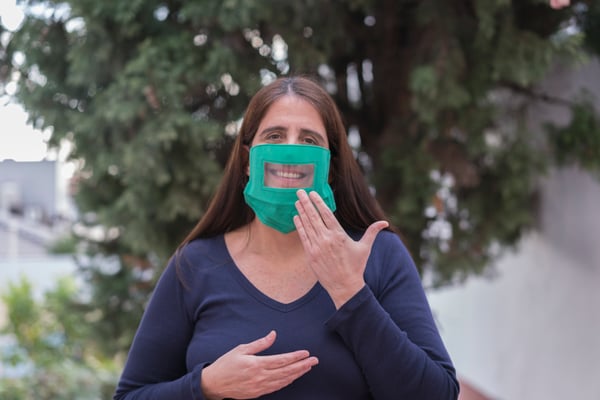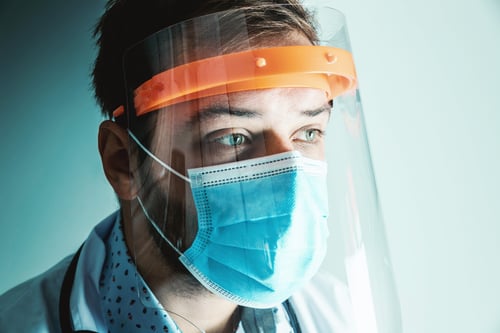
While the COVID-19 pandemic has been difficult on all of us, it has posed significant challenges to the Deaf and Hard of Hearing (DHOH) Community.
We spoke with Viktor Collazo, NIC-MAS, and Melanie Whitt-Trevino, NIC Advanced, about how the DHOH and American Sign Language (ASL) interpreters face these challenges. Viktor is our Associate Director of ASL-VRI(Video Remote Interpretation), and Melanie is an ASL-VRI supervisor and a CODA (a Child of Deaf Adults), each with ten years’ experience at CyraCom.
DHOH options for accessing healthcare in a pandemic
For improving social distancing and lowering the risk of spreading COVID-19, many organizations shifted from in-person meetings or appointments to video conferences.
But remote interpretation service providers like CyraCom had never needed to develop teleconferencing abilities for their interpreter platforms. The demand before the pandemic was for the patient and the provider to be in the same room, viewing the same in-person screen of a video call. Teleconferencing or telehealth phone calls were impossible for the DHOH until the technology was developed.
“Many DHOH were and are still uncomfortable going to appointments in person, where they risk exposure to the virus,” said Melanie.
If a DHOH did go in-person, safety protocols made it difficult to get an onsite interpreter. Many hospitals had to furlough their onsite interpreters or cancel agency appointments to increase social distancing and prevent spreading the virus.
When ASL interpreters did come to onsite appointments, they could not get personal protective equipment (PPE), especially clear masks. Many hospitals struggled to obtain PPE, especially initially, and they were forced to limit what they were giving out, so many interpreters had to provide their own PPE.
“It was almost a year into the pandemic before clear masks were made available,” said Melanie.
Facial expressions are crucial “for full understanding of what is being communicated, and those with hearing aids or cochlear implants… rely on lip reading[…]” Additionally, non-clear facemasks have made DHOH “feel excluded from the world,” according to a March 2021 study.
“Not all deaf and hard of hearing people know ASL,” said Viktor. “Especially if they became deaf later in life. Often these patients rely on lip-reading for communication. Unfortunately, hospital staff must wear facemasks and cannot lower them for safety reasons. We were able to do workarounds with ASL-VRI. I was able to put my face close to the video so I could listen and then mouth what the providers were saying to the patient.”
“Clear face shields were not a great solution either,” Melanie said. “Shields reflected too much, making it hard to see because of the glare.”

“Not that clear masks were always perfect,” added Viktor. “Sometimes clear masks would fog.”
ASL-VRI became important for limiting the number of people in the room, such as adding an onsite interpreter. Hospital staff can use any device, such as a smartphone or tablet, to call for an ASL interpreter through a secure video platform.
After the beginning of the pandemic, CyraCom quickly developed the technology to invite a video interpreter to a telehealth call through an existing teleconference platform. CyraCom Connect works with over 15 different teleconference platforms and provides video interpreters for over 25 languages, including American Sign Language, and audio interpreters for over 200 languages.
CyraCom Connect has already won two awards: a Digital Health Award and a Best in Biz Award for Best New Service. More importantly, it has become an essential service for the DHOH.
“We heard more positive remarks regarding VRI and Telehealth as alternatives than before the pandemic,” said Viktor.
“There’s still some people who prefer onsite, but the vast majority have embraced the technology as good alternative, or even prefer it for safety reasons,” said Melanie.











